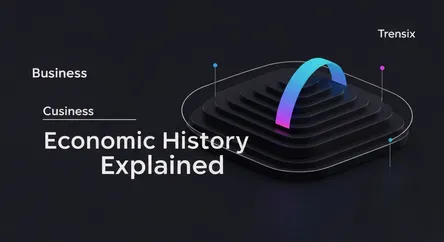Business
Economic History Explained

Discover what economic history is, why it's crucial today, and how studying the past can help us navigate the future of our global economy.
What is it?
Economic history is the academic study of economies and economic events of the past. It's an interdisciplinary field that combines the methods of history and economics to understand how societies have evolved economically over time. Researchers in this field analyze everything from trade patterns and technological innovation to labor relations and government policy in historical contexts. By examining historical data and narratives, economic historians seek to uncover the root causes of long-term economic growth, inequality, financial crises, and the development of institutions that shape our modern world.
Why is it trending?
Interest in economic history is surging as the world grapples with complex challenges like inflation, supply chain disruptions, and the threat of recession. Policymakers and analysts are looking to historical precedents, such as the Great Depression or the stagflation of the 1970s, for lessons on how to respond effectively. The availability of digitized historical data and advanced analytical tools has also opened new frontiers for research, allowing for more rigorous testing of economic theories against historical evidence. This provides valuable context for today's economic debates.
How does it affect people?
Understanding economic history provides crucial perspective on the forces that shape our financial lives. It helps explain the origins of wealth disparity, the cyclical nature of booms and busts, and the impact of government interventions on everyday people. For individuals, it can inform better personal finance and investment decisions by highlighting long-term trends and risks. For society, it allows policymakers to learn from past mistakes and successes, ideally leading to more stable and equitable economic policies that promote widespread prosperity and avoid repeating costly errors from the past.